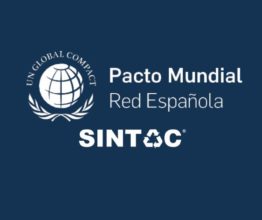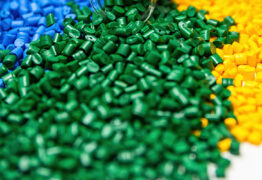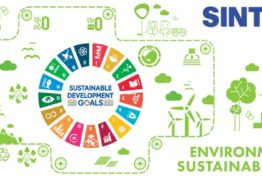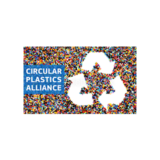Plastics industry: problems in raw material shortages
The plastics industry is on alert. The fall in polymer production, export problems in Asia and North America and the rise in oil prices have led to an unprecedented shortage of raw materials. If this situation does not improve, it will have a direct impact on plastics processing companies and their customers. The lack of supply leads to a drop in production in sectors such as food, pharmaceuticals and automobiles and a rise in the price of the end product. In this context, recycled plastic is an effective solution to the shortage of raw materials and a commitment to the preservation of the planet.
Problems with the supply chain of raw materials
The Spanish Association of Plastics Manufacturers (ANAIP) and the European Plastics Converters (EUPC) are blunt when referring to the current state of the European plastics industry: it is facing an unparalleled shortage of raw materials. In fact, not since 2015 have plastics manufacturers experienced a similar situation. The main cause? The disruption in the supply chain caused, among other things, by the drop in polymer production during the pandemic, by the rise in global oil prices and by export bottlenecks with Asia and the Americas.
These problems with the supply chain of raw materials have had a direct impact on the day-to-day business of plastics processing companies, but also on other companies outside the industry. The shortage of resources has caused an increase in manufacturing costs, has paralysed the production of this material and has led to shortages in key sectors of society such as food and pharmaceuticals

Increased transport costs
Although the breakdown of the supply chain is one of the most serious problems facing the European plastics industry, it is not the only impediment that the sector has to overcome. Rising transport costs are having dire consequences for an industry that relies heavily on exports to Asia and North America for raw material supplies. Rising oil prices have made plastic production more expensive, but also the transport of materials. These two factors have a direct impact on the cost of the final product and affect society as a whole. From plastic processing companies to manufacturers, distributors and the general public, all are affected by this price increase.
Companies most affected
The plastics industry is one of the most affected by the shortage of polymers and additives, but the crisis in this sector extends to all areas of production. The reason for this situation is to be found in the importance of this material for society. When we talk about plastic, we are talking about an essential resource for the manufacture of products that are as widespread as they are necessary in our daily lives: from packaging for the food and pharmaceutical industry to parts for the health sector or the transport and logistics of products.
Some of the companies most affected are:
- Food. Plastic is one of the most widely used materials in the food industry for the packaging and wrapping of food and beverages. It is common to see these products in supermarkets, but also in catering establishments and shops of all kinds. The shortage of raw materials affects the production of packaging that guarantees food safety and hygiene. Without them, the preservation of foodstuffs, as well as their transport, is complicated.
- Healthcare. Another sector affected by the disruption of the supply chain in the plastics industry is the healthcare sector. Syringes, gloves, medical implants, devices and a range of products that are necessary for our health and well-being are made from this material. The disruption in today’s supply chain has a direct and severe impact on this sector.
- Logistics. For the shipment of raw materials and products, containers and products as widespread in the commercial and logistics sector as film paper are needed. The shortage of materials for their manufacture, together with the increase in the price of oil, makes transport significantly more expensive and has repercussions for manufacturers and citizens.

Lack of basic commodities and sanitary products
If we do not opt for a circular economy, based on the production of new resources from recycled materials, the consequences of raw material shortages will not be long in coming. It will become increasingly common to face supply chain problems such as the current one. As well as affecting the supply of basic and sanitary products made from plastic, this will also affect the wallets of companies and citizens. As they are difficult to manufacture, their market value will increase and the number of people who can afford them will be reduced.
Companies such as SINTAC have opted to recycle plastic to create products with the same quality and properties, but much more sustainable for the planet. An action that, in addition to ensuring the supply of raw materials necessary for the manufacture of essential products, contributes to saving water, energy and natural resources. Essential factors in the fight against climate change and its effects on the planet.
Thousands of SMEs at risk
There are more than 50,000 small and medium-sized enterprises (SMEs) in Europe specialising in plastics processing. According to EUPC data, 90% of them have been affected by the shortage of raw materials and have had to limit their orders, their production and, in many cases, their workforce. This critical situation, which, despite starting in the pandemic period, has worsened in recent years and has led SMEs specialising in plastics manufacturing to reduce their customer base and profits.
As a natural importer of raw materials and additives for the production of plastics, our continent must take action and move towards a circular economy. A production and consumption system based on the 3Rs: reduce, reuse and recycle.













